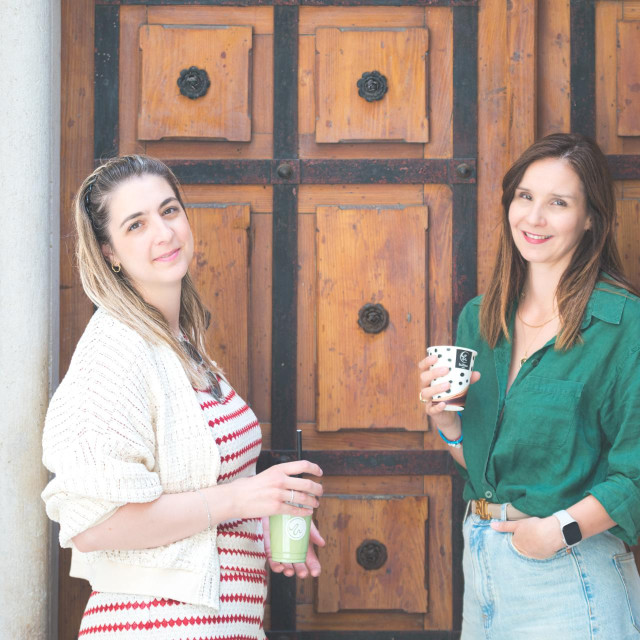Behind Balina, a fritule shop that reinterprets traditional Dalmatian fritule in a fresh, modern, and quality way, stand two friends – Ana Slade - Šilović (36) and Martina Martinis (37), whose idea to start their own business arose from their shared childhood, friendship, and countless hours spent in the kitchen.
- As little girls, we baked various Dalmatian sweets together, often fritule. During one get-together, we started talking about plans for the future and spontaneously came to the conclusion that this is what we really want – to open a fritule shop. And we immediately started making it happen, says Martina.
What sets Balina apart from the classic stands we are used to is the attention Marina and Ana decided to give it – their own recipe, carefully selected ingredients, and unlimited combinations of toppings and sprinkles. Each fritula is fresh, handmade, and made without any artificial additives.
- For a good fritula, the key is a combination of quality ingredients, the right oil temperature, and experience. All those little things make the difference between an average and a truly good fritula, explains Martina.
And the difference can be felt. In just about twenty days since opening, Balina already has its "best sellers" – Belgium, Dubai, and Cheesecake are the most sought after, although everyone can create their own combination. In addition to fritule, Balina also offers specialty coffees, matcha, and homemade craft juices – everything is available to go, perfectly suited to today’s fast pace. Ana and Marina have spent the last year and a half balancing family, motherhood, and opening the fritule shop. Construction work began in March, with a lot of help from Martina’s husband Marko, while Martina managed the works and logistics, and Ana’s husband Sven, an architect with international experience, designed the entire space.
- We did everything ourselves – from the concept and interior design to testing recipes and working behind the counter. It wasn’t easy, but every success now has its weight, honestly admits Marina, who was born in Split and grew up in Seget Donji. She graduated from the Faculty of Economics, but after years of working in her field, she decided to return to something that fulfills her even more. She turned her love for traditional ‘spiza‘, bread, dough, and cooking together with her children into a business that combines everything she loves.
- Through my work, I want people to feel good, whether through a warm smile, a kind word, or a freshly prepared fritula. As a child, I loved small, golden-baked fritule the most, irregular in shape, crispy on the outside and soft on the inside. My favorites were when they were still warm, dusted with powdered sugar, and the whole house smelled of vanilla and lemon zest, says Martina. They decided to give special attention to this sweet treat because, as they say, fritule are part of their culture, especially in Dalmatia and Trogir, but until now they were reserved only for fairs, stands, and special occasions.
- We decided to give this sweet the attention it deserves – through a modern approach and an experience that combines tradition and quality. Running a small business like a fritule shop is a big challenge, but also something that brings us a lot of satisfaction. When you start from scratch, you have a hundred things on your mind – from equipment, supplies, recipes, to how you will attract people. We did everything ourselves – from developing the concept, testing recipes, designing the space, to working behind the counter. When you see people coming back, bringing others, and talking about our fritule – you know you’re going in the right direction, says Ana, for whom Balina is actually a family legacy. The square in front of the fritule shop is named after her great-grandfather Roko Slade-Šilović, and the tavern, now a gastro oasis, had stood unused for years.
- It was home only to pigeons, and I wanted to enrich that space, give it some meaning. An interesting detail about the name is that I found it in the Trogir cakavian dialect dictionary, where it says that balina means small ball, which fit perfectly with our brand – adds Ana, who is also skilled in cooking dishes from the Zagorje region, especially bučnica and štrukli, since part of her family is from Varaždin.
- When cooking, it is especially important to me to use quality ingredients, so I almost exclusively shop at stores with organic products and I am happy that this has, in a way, carried over to Balina, because we really make sure that everything we use is of high quality – concludes Ana.

Za sudjelovanje u komentarima je potrebna prijava, odnosno registracija ako još nemaš korisnički profil....